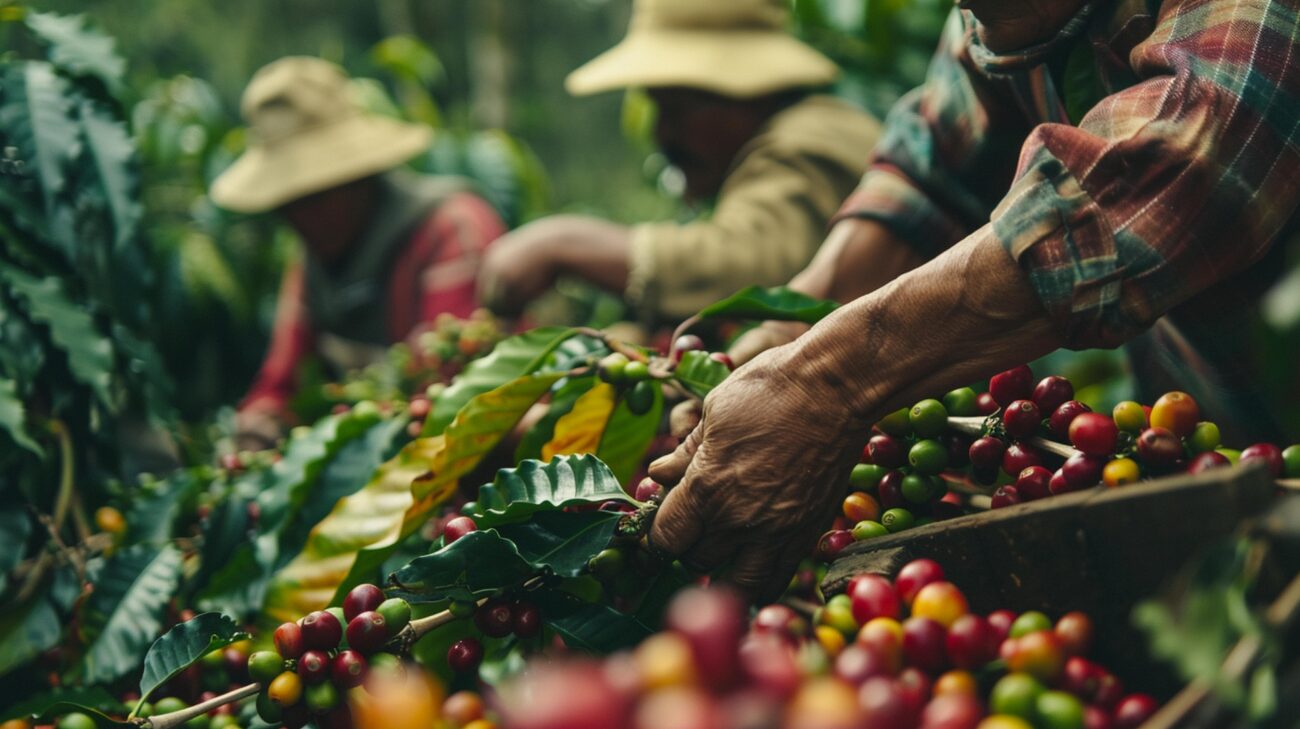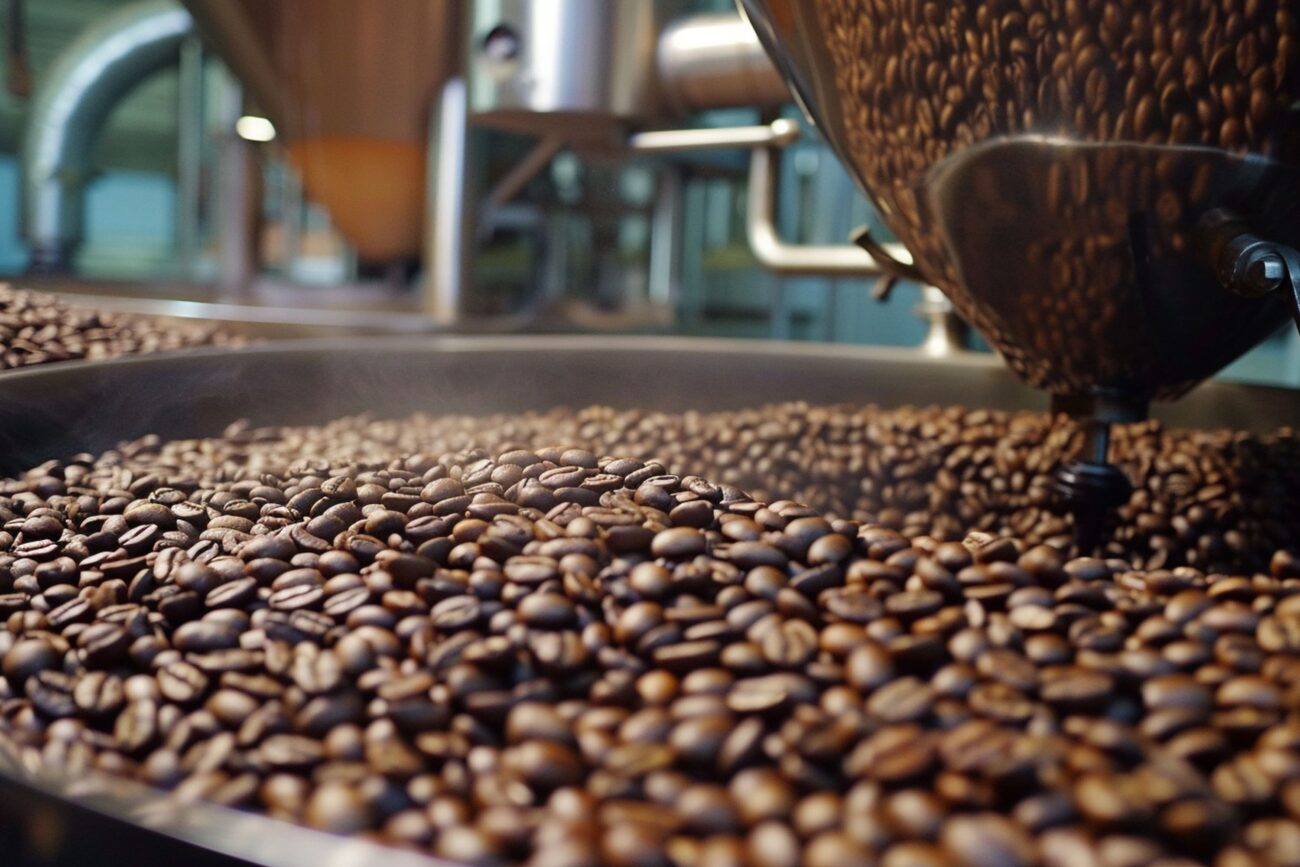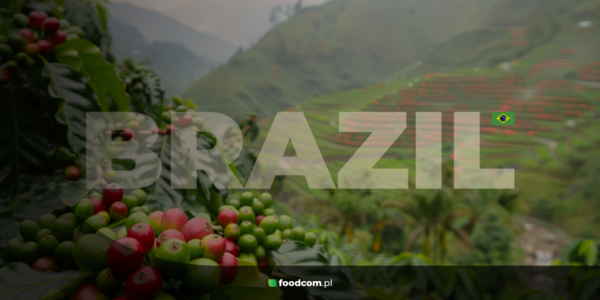- Working conditions and farmers’ wages are key ethical issues in coffee production.
- The coffee industry is dominated by corporations, which often marginalise small farmers.
- The environmental impact of coffee production, including deforestation and chemicals, leads to the degradation of ecosystems.
- Fair Trade and organic certifications support ethical production and improve the livelihoods of farmers.
Coffee is one of the world’s most popular beverages, accompanying millions of people every day in their morning rituals. Widely available in shops, cafés and restaurants, coffee often appears to be an effortless product, but behind every cup is a complex production process. This process, from growing the coffee beans to brewing them, involves a number of ethical challenges that affect both people and the environment.
More and more coffee companies and commodity traders are beginning to realise that their choices can directly affect the lives of farmers and the state of the planet. Working conditions on coffee farms, fair wages for producers, and sustainable farming practices are issues that are playing an increasing role in the discussion about ethical coffee production. Is it possible for us to enjoy our favourite beverage while being ethical and sustainable?
The history of coffee production
Coffee has a long and fascinating history, dating back hundreds of years. According to legend, its discovery took place in Ethiopia, where a shepherd noticed that his goats became energetic after eating red fruits. These fruits, which were coffee beans, soon became popular with local monks, who began brewing an infusion from them.
From Ethiopia, coffee spread throughout the Middle East, where by the 15th century it was already popular in Yemen, Egypt and the Ottoman Empire. Coffee soon made its way to Europe, where it quickly won the favour of the elite. In the 18th century, coffee made its way to the New World and became one of the key commercial commodities, developing plantations in the Caribbean, South America and Africa.
Today, the largest coffee producers are Brazil, Colombia, Vietnam and Ethiopia. However, the growth of the coffee industry comes with serious social and environmental challenges that call into question its sustainability.
Key ethical challenges in coffee production
Working conditions and wages for farmers
One of the most serious problems in coffee production is the difficult working conditions, which are often accompanied by unfair wages. Most coffee comes from small farms in developing countries, where farmers face volatile market prices. The price they receive for their harvest often does not cover the cost of production, leaving many living in poverty. In extreme cases, child labour on plantations is used to minimise costs, which is a violation of human rights.
The coffee industry and large corporations
The global coffee market is dominated by large corporations that have a huge influence on pricing and terms of trade. In practice, this leads to the marginalisation of small farmers, who often do not have access to fair terms of trade. The giants of the coffee industry dictate the terms of cooperation, and farmers are forced to sell their harvest at depressed prices with no room for negotiation. Such a model results in profits from the coffee market going mainly to multinational companies, rather than to the local communities that do most of the work.
Gender equality on plantations
Another major problem is discrimination against women working on coffee plantations. In many regions, women do a significant proportion of the work, but their pay is significantly lower than that of men. In addition, they have limited access to resources such as land, credit or training, making it difficult for them to develop and improve their livelihoods. Promoting gender equality and empowering women in the coffee sector is one step towards fair trade.
Environmental impact of coffee production
Deforestation and loss of biodiversity
The expansion of coffee plantations, especially in tropical countries, is contributing to massive deforestation, which poses a serious threat to biodiversity. Traditional methods of coffee cultivation, such as so-called ‘shade-grown coffee’, were based on planting coffee plants under the cover of natural forests, which minimised the negative impact on the ecosystem. However, pressure to increase crop yields has led to the introduction of more intensive methods that require the clearing of forests, leading to habitat loss for wildlife and reduced plant diversity.
Deforestation associated with coffee production also has an impact on the climate, as forests play a key role in carbon sequestration. The destruction of these ecosystems results in increased greenhouse gas emissions, which in turn contribute to global warming.
Use of pesticides and chemicals
Intensive, large-scale coffee cultivation requires the use of pesticides, herbicides and artificial fertilisers, all of which have a negative impact on the environment. Chemicals seep into the soil and groundwater, leading to contamination. In many regions where coffee plantations are located near rivers and lakes, these substances find their way into local aquatic ecosystems, which can lead to the poisoning of wildlife.
Long-term use of chemicals also leads to soil degradation. Over time, the soil becomes less fertile, forcing farmers to use more and more fertiliser, creating a vicious cycle of destruction of natural resources.
Climate change and coffee production
A changing climate is posing an increasing challenge to coffee producers. Rising temperatures, changes in rainfall and more frequent extreme weather events are adversely affecting coffee crops, reducing yields and compromising bean quality. Coffee is a crop that is particularly sensitive to climate change – it needs specific conditions such as moderate temperatures and adequate humidity to grow and produce the highest quality beans.
At the same time, coffee production itself, especially in the form of intensive monocultures, contributes to climate change through the emission of greenhouse gases. Processes such as transport, processing and packaging of coffee also leave a large carbon footprint, further increasing the environmental impact of this industry.
Examples of movements and certifications supporting ethical coffee production
Fair Trade
Fair Trade is one of the most recognisable movements to support ethical coffee production. Fair Trade certification ensures that farmers receive a fair price for their products, which not only covers production costs but also provides a decent wage. Furthermore, the movement supports the sustainability of local communities by offering additional premiums that can be invested in education, healthcare or infrastructure.
Fair Trade also commits producers to standards on working conditions, the prohibition of child labour and care for the environment. Farmers are encouraged to use organic methods that minimise the use of pesticides and promote sustainable coffee cultivation.
Organic and sustainable agriculture certifications
Organic certifications, such as USDA Organic, ensure that coffee is grown without the use of synthetic pesticides, chemical fertilisers or genetically modified organisms. Organic coffee production emphasises environmental protection, promoting healthy soil, biodiversity and minimising negative impacts on ecosystems.
Sustainable agriculture, often promoted by various certifications such as UTZ or Smithsonian Bird Friendly, supports growing practices that conserve biodiversity, minimise water and energy use and reduce greenhouse gas emissions. Coffee from these certifications is usually grown under the shade of trees, helping to preserve habitat for birds and other animals, while also protecting soil quality.
How to support ethical coffee production?
Choosing certified coffee (Fair Trade, organic)
One of the easiest ways companies can support ethical coffee production is by choosing suppliers with certifications such as Fair Trade or Organic. Products with these certifications guarantee that the coffee has been produced according to certain ethical and environmental standards. These certifications ensure that farmers are fairly compensated and that the environment is not over-exploited.
By working with certified producers, companies can make a real difference to farmers’ livelihoods and promote more sustainable coffee growing practices. Choosing Fair Trade certified coffee helps to support the development of farming communities, which benefit from additional funding for local projects such as education, access to healthcare and infrastructure improvements.
Buying coffee directly from small farmers (Direct Trade)
Many distributors and retailers offer coffee at their outlets, but do not always pay attention to its origin and production method. Coffee companies that pay attention to production ethics can support an ethical approach by choosing coffee from producers that use certification. By doing so, they promote responsible production and support companies that care about workers’ rights and the environment.
By increasing transparency in their offerings, companies can also educate their customers and business partners about the benefits of choosing ethically produced coffee. Being able to communicate the origin of products, e.g. as part of marketing or educational campaigns, contributes to awareness and encourages other market players to adopt similar practices.
Summary
Coffee production, being one of the most important agricultural commodities, poses many social and environmental challenges. Global supply chains involving both producers and distributors of raw materials have a huge impact on farmers’ living conditions and the state of the environment. Issues such as unfair wages, land degradation, deforestation and climate change are all issues that the coffee industry needs to address to ensure sustainability.
A responsible approach to raw materials trade is no longer an option, but a necessity. Raw material companies have the opportunity to shape global trends and support more ethical and sustainable practices. By doing things such as ensuring they are properly certified and working with farmers, the industry can contribute to sustainable development that will benefit both producers and future generations.











